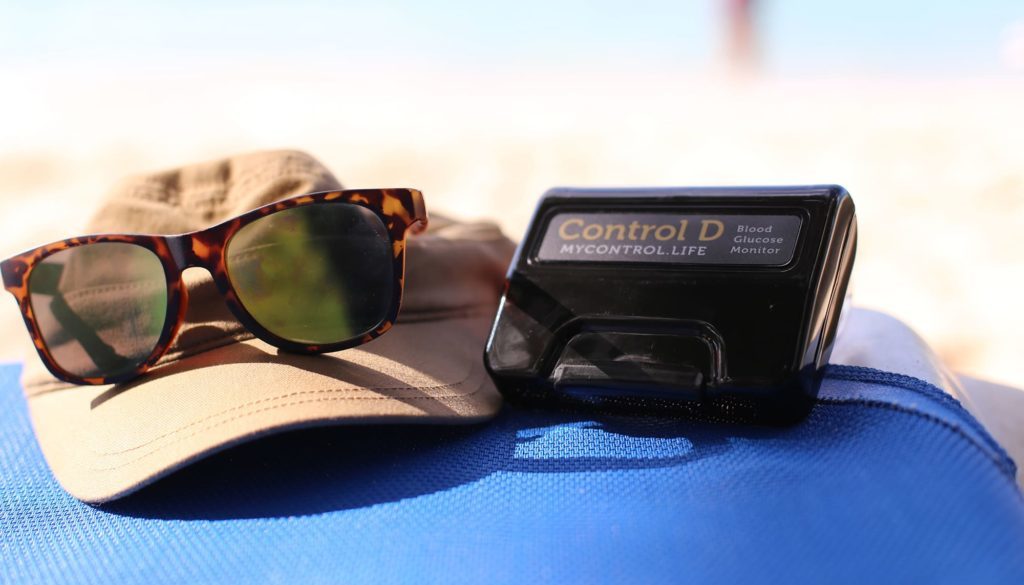Travelling with Diabetes – The Essentials for Planning Your Trip
While travelling with diabetes does take some extra planning, it doesn’t mean you need to miss out on seeing the world. Preparation is key to a healthy and stress-free trip. There are several factors to consider when planning your trip, when you’re travelling by air to your destination, and when you are on your trip. Below we’ll outline the essentials to consider when travelling with diabetes, to ensure you are well prepared to manage any potential changes to your diabetes associated with travel.
Pre-Travel Planning
The most important thing in planning your trip is to first visit your doctor or diabetes specialist to seek advice regarding your trip and to ensure your diabetes is under control and you are fit to travel. Discuss your planned activities to determine if they could affect your diabetes and determine how to manage your diabetes during your trip. Below is a pre-travel checklist to assist you in your travel preparations:
- Visit your family doctor or diabetes specialist to ensure you are fit to travel and to discuss how to manage your diabetes during your trip. Seek advice how to adjust your insulin or oral diabetes medication travelling across time zones.
- Ensure you have enough oral medication and insulin to last your trip.
- Obtain a letter from your doctor stating the need for all equipment you will carry, including syringes, glucose meter and supplies.
- Discuss your planned activities with your doctor and how your diabetes could be affected.
- Obtain a medic alert bracelet indicating you have diabetes, especially if you are travelling alone.
- Purchase travel medical insurance in case you need medical care while travelling.
- Learn some phrases in the local language of your destination such as “I have diabetes.”
- Locate nearby pharmacies and hospitals at your destination in case of emergency.
- Visit a travel clinic to ensure you receive recommended vaccines and travel health advice for your destination.
Packing Essentials for Diabetes Management
In addition to a standard travel health kit, it is important to pack all supplies and equipment specific to diabetes management that you may potentially need on your trip. For more information about standard travel health kit items and other packing essentials visit our blog: https://travelsafeclinic.ca/packing-essentials/. Below are essential diabetes related items to pack for your trip:
- Oral medication and insulin
- Contact information for your doctor or diabetes specialist
- Blood glucose meter, test strips, and extra batteries
- Extra supply of syringes and needles
- Urine ketone testing strips
- Glucagon emergency kit
- Fast acting sugar to treat low blood sugar
- Healthy snacks in case there is a delay in mealtimes while travelling
Air Travel
There are several factors to consider when travelling by air, both while in the airport and while in the air:
- Pack all diabetes supplies and medications in carry-on luggage (insulin could get too cold and possibly freeze in checked luggage).
- Ensure supplies are easily accessible during your flight.
- Pack snacks in carry-on luggage including fast acting sugars to prevent hypoglycemia.
- Order a special meal in advance of your flight or pack your own.
- Security scanners can damage continuous glucose monitoring devices and insulin pumps. If you have these types of devices request a manual search instead.
- Check blood glucose at 4-6 hour intervals during air travel.
- If you’re travelling across time zones set an alarm for taking medications.
- Carry wipes to clean your hands before checking your blood sugar.
On Your Trip
Be prepared for changes in blood sugar levels when travelling which will require proper management. Many things can affect blood sugar levels while travelling, such as heat, physical activity, and arriving in a new time zone. The key is to check blood sugar levels often, and adjust your insulin, food, and activities accordingly. Follow the guidelines below to ensure you are well prepared to manage your diabetes at your destination:
- Heat can damage insulin, diabetes medication, and other equipment. Store insulin and medication in a cooler. Do not leave blood glucose meter, test strips, insulin pump or other equipment in direct sunlight or hot car.
- As your body adjusts to new time zones check your blood sugar often.
- If travelling in a hot climate check blood sugar often throughout your trip as high temperatures can affect how your body uses insulin.
- Check your blood sugar before and after physical activity.
- Try to eat meals at regular times and carry snacks in case meals are delayed.
- Don’t walk barefoot, not even on the beach. Check your feet daily for injuries. Seek medical attention at the first sign of infection.
- If travelling to high altitude the accuracy of your blood glucose meter can be affected. Have a backup method on hand (such as urine ketone test strips) to verify results.
Travelling with diabetes may at times feel daunting, but with careful preparation you’ll be ready to see the world!
Sources
https://www.cdc.gov/diabetes/library/features/traveling-with-diabetes.html
https://www.diabetes.ca/en-CA/learn-about-diabetes/your-rights/air-travel
https://www.iamat.org/blog/travelling-with-diabetes/
TravelSafe Clinical Educator – Kristin Cain, RN, BSc, MSc(A)



